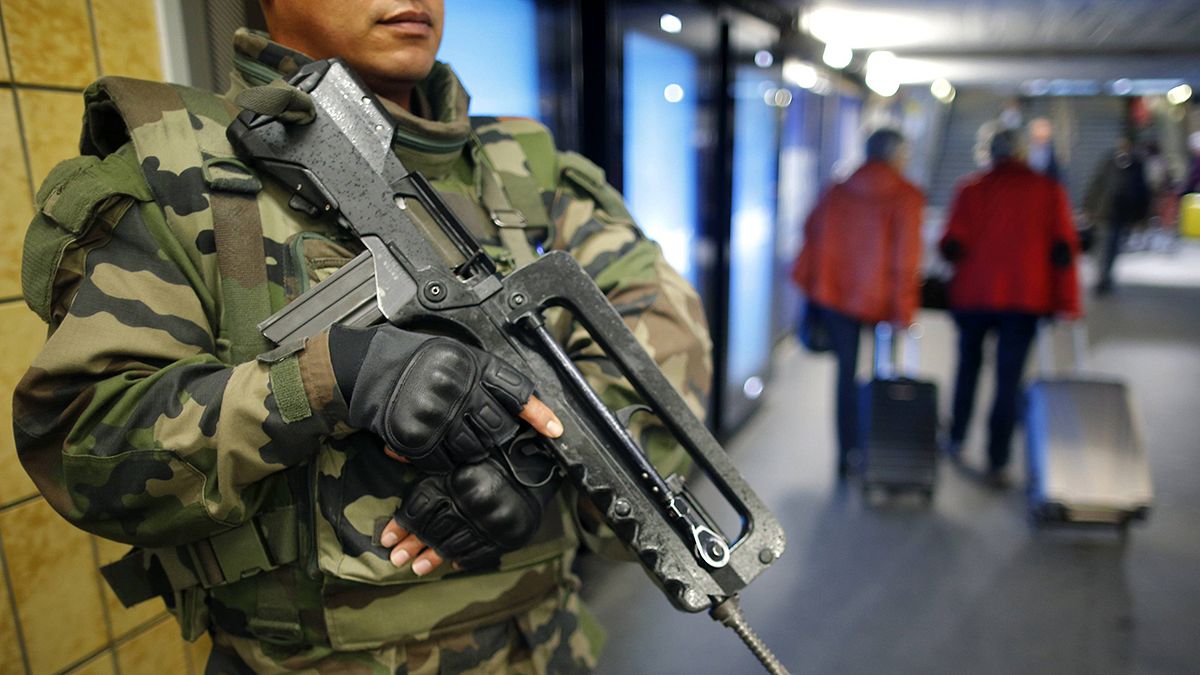US Secretary of State John Kerry: “We’ve agreed to exchange even more information.” Belgian Foreign Minister Didier Reynders: “Intelligence is the
US Secretary of State John Kerry: “We’ve agreed to exchange even more information.”
Belgian Foreign Minister Didier Reynders: “Intelligence is the only way to block some possible terrorists activities before terrorists attack.”
UK Prime Minister David Cameron: “We’ll make a major additional investment in our world class intelligence agencies.”
Secretary General of NATO Jens Stoltenberg: “We are intensifying our work exchanging analysis, information, intelligence.”
In the highest places, there is agreement to sharpen anti-terrorism intelligence capacities. And yet when questions were asked about the French services’ performance in the context of the Paris attacks, the government said they had not fared poorly, there was simply always a risk.
Minister of the Interior Bernard Cazeneuve said: “This attack was prepared and organised by cells outside the national territory by individuals who were not known to our services.”
Some of them actually were known, such as the Bataclan theatre attacker Samy Amimour, from Paris, as he was charged with terrorist association in 2012. One year later he left for Syria, an international arrest warrant was issued and yet he managed to slip back into France.
His team mate Omar Ismaïl Mostefaï, from a Paris suburb, in 2010 attracted the notice of the General Directorate for External Security (France’s equivalent of the CIA or MI6) and he was flagged for special surveillance. Charlie Hebdo killer Cherif Kouachi and Montrouge accomplice Amedi Coulibaly were also on the ‘S’ list. So was Mohamed Merah, whose victims in Toulouse and Montauban in 2012 included French soldiers, Jewish schoolchildren and a rabbi.
Turkey on Monday revealed that Ankara twice warned Paris about Mostefaï, in October last year and in June this year, but, according to Ankara, Paris did not follow up on the information.
The EU’s interior ministers this Friday will study stringent French demands for suspensions of provisions in the Schengen Agreement on open internal borders. Paris is also stressing tighter external border cooperation and pressing the European Parliament to accept an airline passenger data sharing system.
Bernard Cazeneuve’s reference to cells — inside or outside of France — provides a strong theme for reflection by an expert we talked to in the aftermath of the November 13th violence, in the latter part of the interview which continues this article. He refers to a dangerous absence of ‘social contract’.
Mohamed Abdel Azim, euronews: “Bertrand Badie, international relations specialist with the Paris Institute of Political Studies, thanks for joining us. Have the Paris attacks moved the goal posts, and has Bashar al-Assad’s departure become secondary to the fight against Daesh [ISIL]?”
Bertrand Badie, Paris Sciences Po: “The French government is caught between a rock and a hard place I’d say, [faced with a choice of either] to change diplomatic direction under the effects of the crisis and the painful events of Black Friday, which is practically impossible, or to adhere to a course that was rather leading it toward an impasse. Let’s say there is a choice in between: the French government sticks to its line, notably a line favourable to intervention in practice, with all the dangers that accompany that, but with some adjustment. It is significant that we can see a step in Russia’s direction and the implicit half-step in Bashar al-Assad’s direction as changes in adapting the diplomatic approach.”
euronews: “Is the international community now more united against Daesh than it was before the attacks?”
Badie: “There’s the big problem, what is Daesh? What do you do against Daesh? How do you identify an action as coming from Daesh? It’s a bit simplistic to respond to these questions by saying, ‘This means war’. In our European memory, war means other things. It refers to a confrontation of powers, of countries, it refers in our memory to the clash of armies, of territories and borders, and also to a diplomatic practice of being ready to enter into negotiation. There is none of all that in dealing with Daesh, so to simplify its identity by considering it a state-in-the-making and that the best way to get back at it is through war seems sort of off the rails to me.”
euronews: “In a globalised world, terrorism relies on sleeper cells. What can Europe do about this?”
Badie: “The notion of the sleeper cell shows us that it is not states or armies that are in the front line today but societies. This violence comes from deep within society, this violence is organised by specialised entrepreneurs. Daesh and Al Qaeda are entrepreneurs of violence, and as a result we continue to think of war as if it were about a clash of powers, of state-like powers, whereas in reality it’s about the decomposition and transformation of societies. Therefore, we have to rethink our well-being and our security within these societies. Even the ways French society functions will have to be rethought. It is not only that French society has sleeper cells in its midst; there are abscesses of fixations, frustration, humiliation, tension, violence, rejection, intolerance of all sorts, which are the fermentation behind this kind of disaster. Then we have to think about the societies at the point of origin, as well — about Iraqi society, Syrian society — realise that these societies are at war because they no longer have a social contract, because they have broken down, and therefore the best way to go about attaining peace is to mobilise local actors, regional actors, so that they reconstruct their social contract. I am not sure that outside intervention by state powers, often from far away, is a way to take care of this kind of conflict.”
